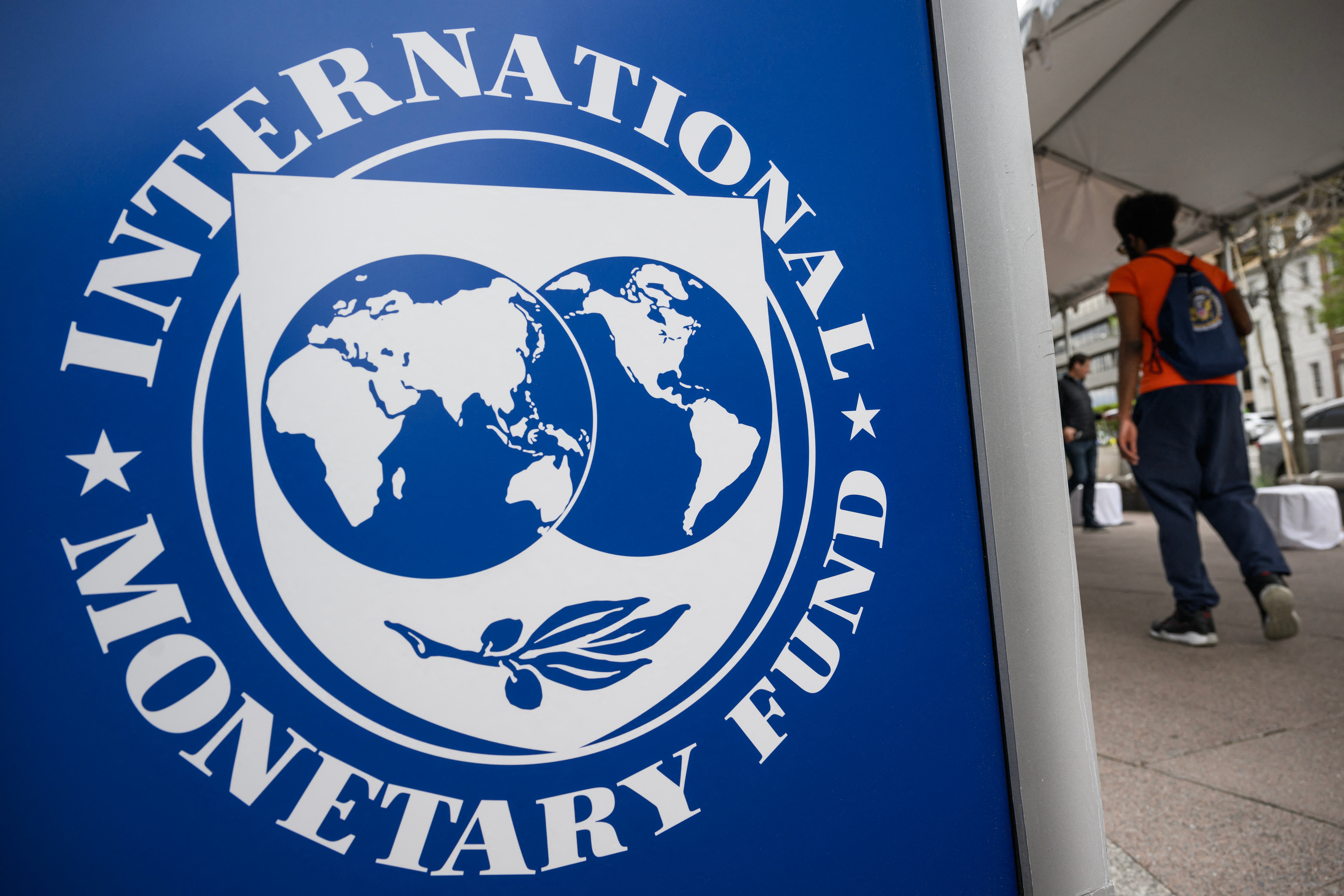
Pedestrians walk past the International Monetary Fund (IMF) headquarters on April 12, 2024, in Washington, DC, ahead of the IMF/World Bank 2024 Spring Meetings. (Photo by MANDEL NGAN / AFP)
The board of the International Monetary Fund (IMF) agreed Wednesday to loan Pakistan $7 billion to bolster its faltering economy, approving a relief package that Islamabad has pledged would be the last from the Washington-based lender.
The three-year loan program “will require sound policies and reforms” to support Pakistan’s ongoing efforts to strengthen its economy “and create conditions for a stronger, more inclusive, and resilient growth,” the IMF said in a statement.
The South Asian nation in July agreed to the deal – its 24th IMF payout since 1958 – in exchange for unpopular reforms, including widening its chronically low tax base.
Pakistan last year came to the brink of default as the economy shriveled amid political chaos following catastrophic 2022 monsoon floods and decades of mismanagement, as well as a global economic downturn.
READ: IMF maintains 2024 global growth forecast, warns of inflation risk
It was saved by last-minute loans from friendly countries as well as an IMF rescue package, but its finances remain in dire straits, with high inflation and staggering public debts.
“This program should be considered the last program,” Prime Minister Shehbaz Sharif said in July when the loan deal was agreed.
Islamabad wrangled for months with IMF officials to unlock the new loan.
It came on the condition of far-reaching reforms including hiking household bills to remedy a permanently crisis-stricken energy sector and uplifting pitiful tax takings.
READ: IMF approves $3-B bailout for cash-starved Pakistan
In a nation of over 240 million people where most jobs are in the informal sector, only 5.2 million filed income tax returns in 2022.
The IMF said Pakistan “has taken key steps to restoring economic stability with consistent reforms.” But “despite this progress, Pakistan’s vulnerabilities and structural challenges remain formidable,” it warned.
“A difficult business environment, weak governance, and an outsized role of the state hinder investment, which remains very low compared to peers,” it added.